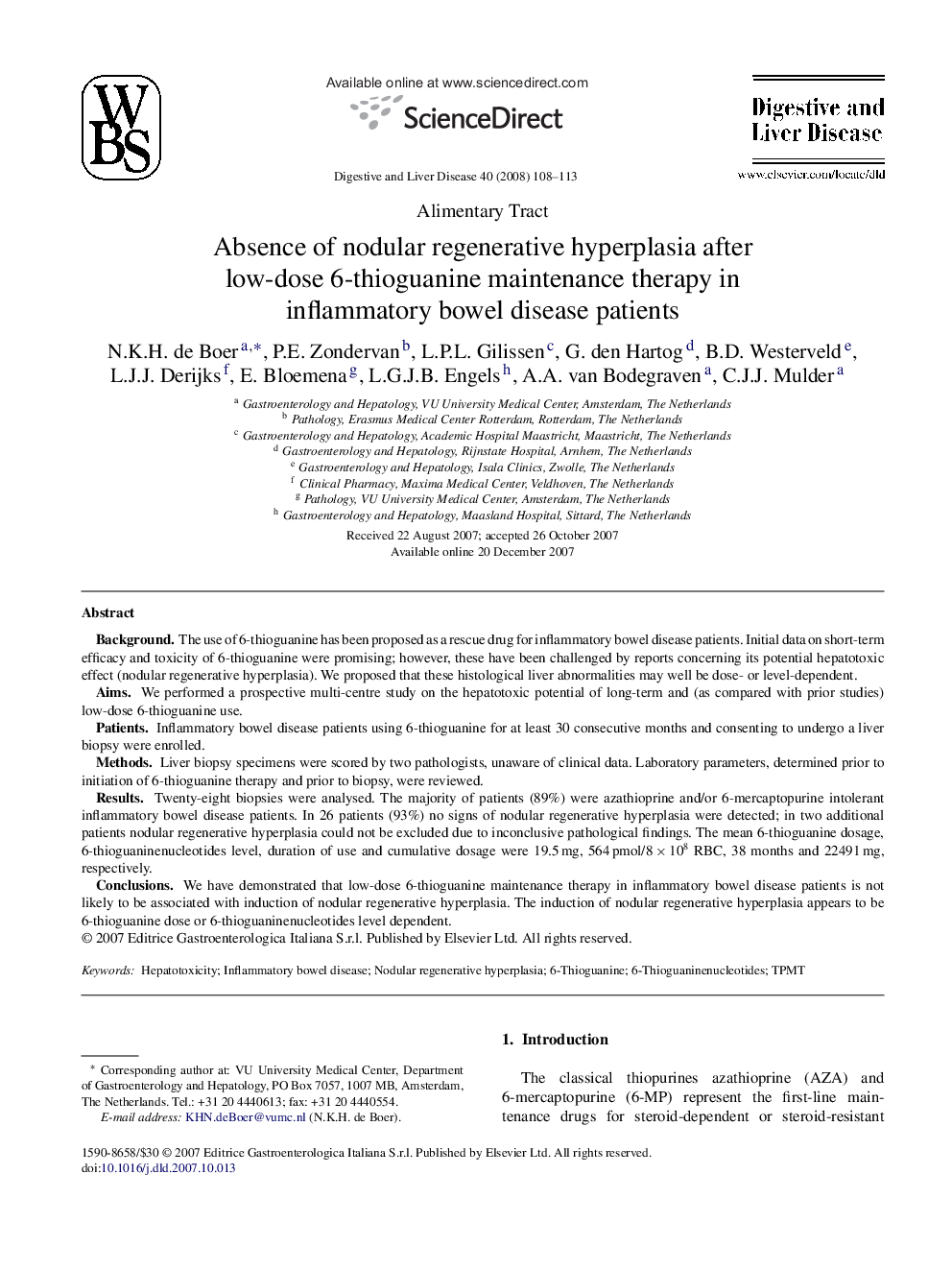| Article ID | Journal | Published Year | Pages | File Type |
|---|---|---|---|---|
| 3265815 | Digestive and Liver Disease | 2008 | 6 Pages |
BackgroundThe use of 6-thioguanine has been proposed as a rescue drug for inflammatory bowel disease patients. Initial data on short-term efficacy and toxicity of 6-thioguanine were promising; however, these have been challenged by reports concerning its potential hepatotoxic effect (nodular regenerative hyperplasia). We proposed that these histological liver abnormalities may well be dose- or level-dependent.AimsWe performed a prospective multi-centre study on the hepatotoxic potential of long-term and (as compared with prior studies) low-dose 6-thioguanine use.PatientsInflammatory bowel disease patients using 6-thioguanine for at least 30 consecutive months and consenting to undergo a liver biopsy were enrolled.MethodsLiver biopsy specimens were scored by two pathologists, unaware of clinical data. Laboratory parameters, determined prior to initiation of 6-thioguanine therapy and prior to biopsy, were reviewed.ResultsTwenty-eight biopsies were analysed. The majority of patients (89%) were azathioprine and/or 6-mercaptopurine intolerant inflammatory bowel disease patients. In 26 patients (93%) no signs of nodular regenerative hyperplasia were detected; in two additional patients nodular regenerative hyperplasia could not be excluded due to inconclusive pathological findings. The mean 6-thioguanine dosage, 6-thioguaninenucleotides level, duration of use and cumulative dosage were 19.5 mg, 564 pmol/8 × 108 RBC, 38 months and 22491 mg, respectively.ConclusionsWe have demonstrated that low-dose 6-thioguanine maintenance therapy in inflammatory bowel disease patients is not likely to be associated with induction of nodular regenerative hyperplasia. The induction of nodular regenerative hyperplasia appears to be 6-thioguanine dose or 6-thioguaninenucleotides level dependent.
